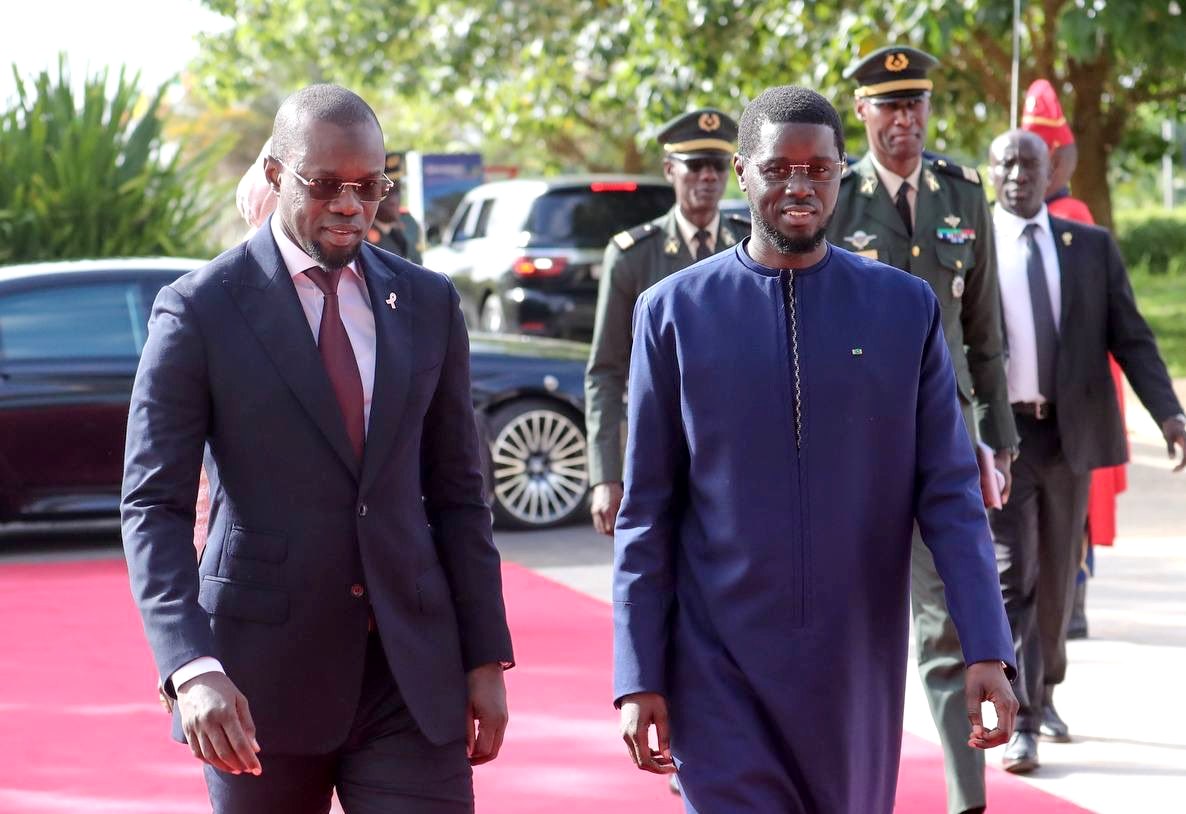
Since his quiet return from the United States last Saturday, Senegalese President Bassirou Diomaye Faye has maintained a notable silence.
This absence of response to Prime Minister Ousmane Sonko’s recent criticisms—voiced during a national council meeting of their party, PASTEF—has stirred speculation, casting a shadow over what was once hailed as a united leadership in the post-Macky Sall era.
Sonko’s speech on July 10 was strikingly direct. He expressed discontent over what he perceived as a lack of public support from the president amid sustained attacks against him. “I want either affirmed support or the freedom to act without institutional constraints,” he declared.
The comment, both bold and pointed, evoked echoes of Senegal’s political past—particularly the historic fissure between former leaders Léopold Sédar Senghor and Mamadou Dia. While some see parallels, analysts like sociologist Mamadou Wane Mao caution against oversimplifying the situation, suggesting it reflects methodological differences rather than a power struggle.
Efforts by the Minister of Civil Service to downplay the tensions on national television have done little to quell public speculation.
The return of the National Assembly President from a trip to Paris added fuel to the fire, interpreted by some as a preemptive move to stabilize a potentially fracturing executive.
Within PASTEF itself, the narrative remains split. Deputy spokesperson Marie Rose Faye insists that “there is no rupture,” describing the exchange as a healthy form of internal correction.
Yet, others interpret the episode as indicative of growing friction between two distinct visions for Senegal’s future—Sonko’s more radical reformist stance versus Faye’s measured, institutionalist approach.
Amid these internal rumbles, rumors are circulating about Sonko’s possible departure from the Prime Minister’s role and a return to the National Assembly.
Though no official confirmation has emerged, the speculation reflects broader questions about governance style, power sharing, and the viability of co-leadership in a young, reform-driven administration.
Ultimately, what is unfolding may not be a definitive break, but a stress test of Senegal’s new political configuration.
In a climate where every silence speaks volumes, the coming days will reveal whether this tension is a fleeting episode or the beginning of a deeper transformation in the country’s leadership dynamic.



